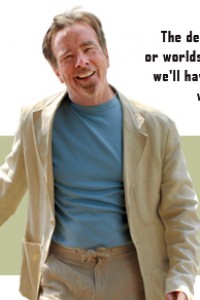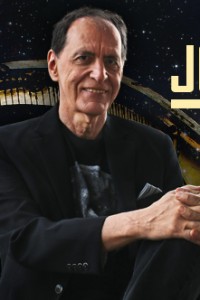Patrick & Teresa Nielsen Hayden: The Continuation of Fanac by Other Means
 Teresa Nielsen Hayden was born Teresa Nielsen on March 21, 1956 in Chamberlain SD, and grew up in Arizona. She became active in fandom in the mid 1970s,and with her husband Patrick co-edited the Hugo Award-nominated fanzine Izzard from 1982-87. They both served on the editorial board of The Little Magazine from 1985-88 and helped found The New York Review of Science Fiction in 1988. She has worked in many areas of book production, was managing editor at Tor, and has edited comics and literary criticism as well as novels. She has been a consulting editor for Tor since 1990. In 1984 and 1991 she was a Best Fan Writer Hugo Award nominee. Her Hugo Award-nominated collection Making Book (1994) gathers a range of essays on the practical side of publishing, and miscellaneous other subjects. She is also known as a forum moderator, and in November 2002 invented disemvowelling. From 2007 to 2009 she was the community manager at Boing Boing.
Teresa Nielsen Hayden was born Teresa Nielsen on March 21, 1956 in Chamberlain SD, and grew up in Arizona. She became active in fandom in the mid 1970s,and with her husband Patrick co-edited the Hugo Award-nominated fanzine Izzard from 1982-87. They both served on the editorial board of The Little Magazine from 1985-88 and helped found The New York Review of Science Fiction in 1988. She has worked in many areas of book production, was managing editor at Tor, and has edited comics and literary criticism as well as novels. She has been a consulting editor for Tor since 1990. In 1984 and 1991 she was a Best Fan Writer Hugo Award nominee. Her Hugo Award-nominated collection Making Book (1994) gathers a range of essays on the practical side of publishing, and miscellaneous other subjects. She is also known as a forum moderator, and in November 2002 invented disemvowelling. From 2007 to 2009 she was the community manager at Boing Boing.
Patrick Nielsen Hayden was born Patrick James Hayden on January 2, 1959 in Lansing MI. He became active in fandom in 1975 in Phoenix, Arizona, and published and contributed to many fanzines in the 1970s and ’80s. On moving to New York in 1984 he worked as an editorial assistant at the Literary Guild and alongside Teresa as an associate editor at reference publisher Chelsea House before joining Tor in the mid-1980s as an administrative editor. He is now a senior editor there and the editorial manager of Tor’s SF and fantasy line, and also edits short fiction for Tor.com. He edited all three volumes of the critically acclaimed Starlight original anthology series (1996, 1998, and 2001); the first volume won a World Fantasy Award. Other anthologies include Alternate Skiffy (1997, with Mike Resnick), New Skies (2003), New Magics (2004), and The Year’s Best Science Fiction and Fantasy for Teens (2005, with Jane Yolen). He was nominated for Best Fan Writer Hugo Awards in 1985 and 1986, and for Best Professional Editor in 1997, 1999, 2000, 2002, 2007, 2008, 2009, 2010, 2012, and 2013, winning twice. [sfadb.com: Patrick Nielsen Hayden] He also plays guitar and sings in the band Whisperado.
Patrick and Teresa married in 1979, and took the joint last name Nielsen Hayden. They helped run the 1978 Worldcon and the 1999-2001 Minicons, and were Trans-Atlantic Fan Fund delegates at the U.K. for the 1985 Eastercon. They run the popular blog Making Light and teach every year at the Viable Paradise writing workshop. They published Samuel R. Delany’s Wagner/Artaud: ‘‘A Play of 19th and 20th Century Critical Fiction (1988) through their Ansatz Press. In 2003 they were joint winners of a Skylark Award for their contributions to SF. They live in Brooklyn.
Excerpts from the interview:
Teresa Nielsen Hayden: ‘‘The first time we met, it was in 8.5’’ x 11’’ twiltone mimeograph paper. I noticed that Patrick did really good colophons. He liked my adjectives.’’
Patrick Nielsen Hayden: ‘‘We met in person about a year later. We were both quite young. A couple of years later we got involved. When we married, she was 23 and I was 20. I got into fandom when I was 16 in 1975 in Arizona, when I was still living at home with my family, doing a classic teenage throwing-myself-into-organized-science fiction-fandom-at-a-great-rate thing. I went to one meeting and by the end of it had gotten conned into taking over the editorship of the Phoenix club fanzine. I went to my first convention a month later, and my second convention was the first convention ever held in Phoenix, and I was one of the gophers, the general staff people. This is all against the backdrop of my family preparing to move to Toronto, so I very industriously got in contact with Toronto fans. We moved that summer. But I stayed in touch with the Phoenix crowd, and a year later Teresa got into that social group, so we sort of knew each other in print.’’
…
TNH: ‘‘For a long time we’d wanted to do something more serious about science fiction, because the old sercon fanzines, lumbering dinosaurs of things, had mostly gone away. What we had left was light reviewing in fanzines, and academic scholarship which could be pretty stodgy. We wanted a venue for the half-baked theories and informal critics – like, ‘I have this interesting idea, but there’s no way I’m doing the footnotes on it.’’’
PNH: ‘‘There’s a place for informed commentary about science fiction from the better-informed end of fandom that overlaps with the publishing scene in New York. One of the things that occurred to us was that we were almost certainly going to be traduced as a bunch of New York literary elitists. That’s why I named it The New York Review of Science Fiction: ‘‘because that’s the most in-your-face, take-us-on, we-are-the-thing-you-fear name possible.’’
TNH: ‘‘’We are snotty elitists, neener neener.’ We were partly inspired by The Pretentious Science Fiction Quarterly. So that was fun.
…
TNH: ‘‘Readers would ask us anything. It came to me that Tor needed to have a real website. There’s a running conversation in science fiction that’s been going on since the 1930s, and it never ends, it just instantiates in different places. GEnie gave it a really good place to instantiate. People in science fiction go to have conversations wherever the other people are. We’re a gregarious species. So I said look, there’s this mindspace, this conversation, and we can catch it if we make a place for it. Eventually we got the attention of Fritz Foy, who’s a high-level person at Macmillan. Have you seen Pulp Fiction? You know the Wolf, the guy who comes in and fixes things? Fritz does that at a corporate level, only he tidies up infrastructure, not murder scenes.’’
PNH: ‘‘Officially he’s the senior vice president of digital development. He’s also a giant geek. He’s a huge comics fan, huge science fiction fan, loves working with Tor. Tor.com was actually born five or six years ago at a Christmas party in the back room of a bar. This was the point at which, after years of the rudimentary 1995-style Tor website persisting into the era of modern websites, Tor had ponied up the money and paid professionals to put up a corporate calling-card website that looks like everybody else’s boring website. We’d been having a lot of desultory conversation about how basically nobody goes to corporate websites like that. At the party, Fritz Foy walked up to us and Irene Gallo and said, ‘I just realized how little the science fiction magazines pay for fiction! We could pay lots more than that and we’d still be throwing away less money than we routinely throw away on newspaper ads!’ We said ‘True fact.’’’
…
PNH: ‘‘Tor.com is a giant cost center. No one expects it to make any money. It’s set up as a separate company under the Macmillan umbrella. It’s a big sandbox and testbed. This is my interpretation, it’s not official policy, but in a very real sense it’s a way of getting more Macmillan people used to the idea that the future of book publishing is going to have a lot more to do with us dealing directly with individual readers.’’
TNH: ‘‘Frankly, it’s also a way of handing love back to science fiction readers and community, because Tor’s always been like that. Nobody ever knows what’s going to be happening in five years. For example, it’s a lot easier to do hardcovers and trade paperbacks than mass markets at this point.’’
PNH: ‘‘There’ll be lots more e-only publishing. There’ll be e-only stuff at the top publishing level, or e-first stuff. We’re doing this experiment with Scalzi’s next Old Man’s War book, The Human Division, releasing it as a digital serial first, early next year. He wrote it so that each episode is short story length. They’re for sale weekly, for 13 weeks, 99 cents each. It’s a good idea but it might totally flop. Even if it totally flops, we’ll be smarter for it.’’
…
PNH: ‘‘Our competition at Tor isn’t Ace or Del Rey or Simon & Schuster. They’re part of it, but the real competition is all the other things you can do with your time these days instead of reading books, many of which are really high-quality and terrific things to do. The task is staying interesting in the face of all that. Anybody who’s our age – I’m 53 and she’s 56 – we were kids and teenagers in the ’60s and ’70s, so we’re the last or second to last generation who can remember being bored kids with nothing to do.’’
TNH: ‘‘We remember running out of things to read. We remember conversations with the earlier generations that remembered a time when there wasn’t science fiction. I remember Gordy Dickson saying it would be a different world when the last of those died. We remember a universe where there was a paucity of entertainment. This is not that universe any more.’’
…
PNH: These days I’m actually less interested in finding the next Book of the New Sun, and more on the lookout for books like Old Man’s War or Little Brother, what John Scalzi calls entry-level science fiction. It’s comprehensible even if you haven’t been pickled in SF for the last 25 years. The Book of the New Sun is a great piece of work, it’s a masterpiece for people who have spent decades inhaling vast quantities of science fiction and fantasy. I’m at least as interested in books like Spin by Robert Charles Wilson, because it tore through a pile of readers inside Tor who almost never read SF. They all latched onto Spin and went, ‘Wow! This is science fiction that I actually like!’’’
TNH: ‘‘We need both kinds.
PNH: ‘‘Right.’’


 Read the complete interview, and biographical profile, in the
Read the complete interview, and biographical profile, in the 



Smart people. Wish I knew them. . .oh wait. . .